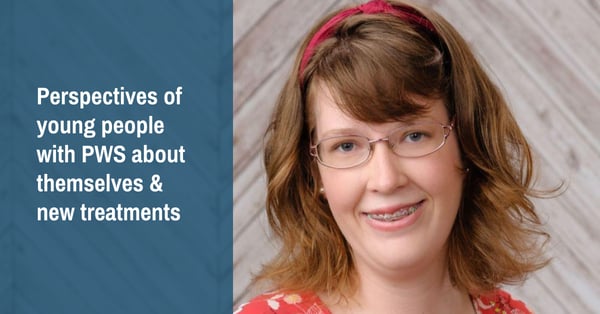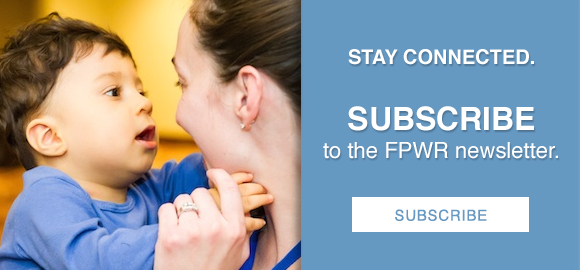A tremendous amount of work has been done by The PWS Clinical Trials Consortium to understand and document the views of Prader-Willi syndrome families. Now, a new study validates what PWS caregivers have reported, by sharing first-person perspectives from people with PWS — including insightful and poignant quotes about not just their struggles, but their hopes for the future.
Meeting a Need to Hear from People With PWS
Studies have shared families' valuable perspectives on defining the impact of PWS symptoms, what aspects of PWS need new treatments, and the level of enthusiasm/tolerance for risk in new treatments. The findings of studies on PWS caregiver burden, specific PWS challenges and how they affect caregivers, caregiver priorities for treatment endpoints, and benefit-risk tradeoffs) have been shared with the FDA to help them understand the needs of the community.
While these studies have focused on the perceptions of the primary caregiver of those with PWS (usually, the parents), the FDA has expressed an interest in understanding the perspective of the person with PWS themselves. Of course, this can be challenging in PWS, since individuals may have intellectual disability and social deficits that include poor self-perception.
A study by Dr. Elisabeth Dykens, Elizabeth Roof and their team at Vanderbilt University addresses this challenge and provides regulatory agencies with information on the needs of people with PWS, from the perspectives of people with PWS. The results have been published in their paper The Cure For Us Is a Lot of Things: How Young People with Prader-Willi Syndrome View Themselves and Future Clinical Trials. The researchers conducted interviews with individuals with PWS to gain their insights on what they found most challenging about PWS and what their priorities are for clinical trials/new treatments.

Study Methods, Challenges, and Findings
For this study, the researchers chose 21 teenagers and young adults who they felt might be able to effectively express their perspective, and interviewed them in a videoconference setting. Importantly, even though this research team is exceptionally skilled at working with individuals with PWS and the participants had been chosen based on previous interactions, a significant number of participants (n=6) really were not able to express their perspective on the topics discussed. The difficulty in responding was not associated with age, intellectual ability or genetic subtype, suggesting that it may be difficult to predict who would have a hard time effectively participating in such an assessment. This is important to emphasize as it suggests that clinical trials cannot rely on "self-reporting" of the person with PWS, as is preferred in drug trials in the general population.
However, a number of participants were able to express their perspective and they provided very interesting insights into the challenges of living with PWS and what they would like to see in new treatments for PWS. Among the themes that were expressed by this group included:
- the struggles of dealing with chronic hunger and how it interferes with their ability to achieve their goals,
- challenges in controlling their anxiety and emotional outbursts,
- a desire to not have PWS define them,
- and their belief that new drugs should be developed for PWS that address these problems.
Personal Perspectives Affirm Caregiver Reports
Although the study group is small, the results show a very strong alignment with what caregivers have reported – that there are tremendous challenges living with PWS; hunger, stress and outbursts have a strong negative impact on the ability of the person with PWS to participate in their community and achieve their goals; and there is an urgent need for new treatments to address these issues. The paper is full of insightful and poignant quotes from the participants about the struggles of PWS and their hopes for the future, which should encourage us to double down on our efforts to advance the research needed for new therapies to succeed.







